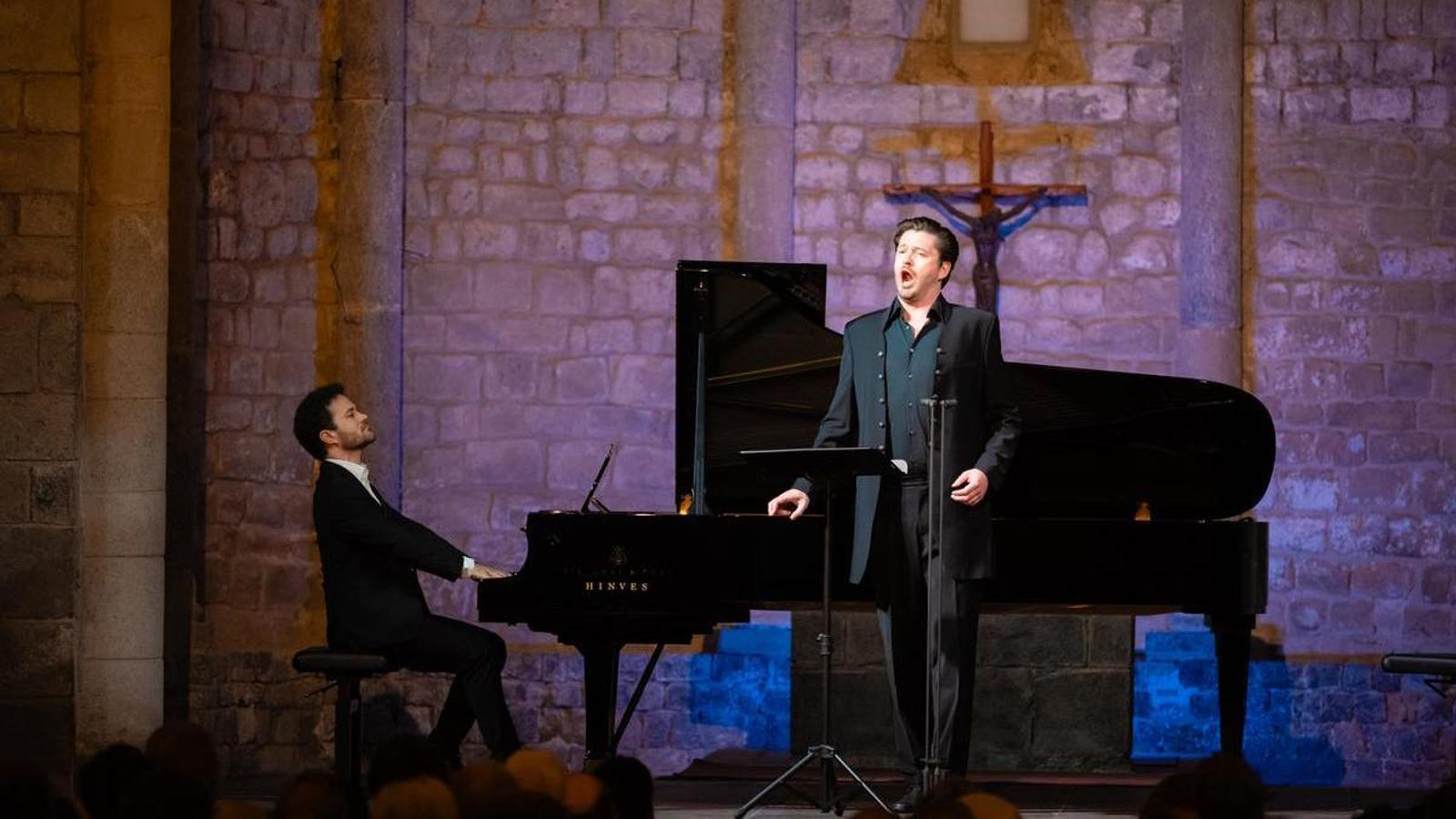200 years since Schubert's miracle
Baritone Samuel Hasselhorn and pianist Ammiel Bushakevitz bring to the Vilabertran Schubertiade the project of recovering the last lieds of the Austrian composer, written two centuries ago.


VilabertranFor five years, baritone Samuel Hasselhorn has been working with pianist Ammiel Bushakevitz to recover the extensive catalogue of late lieds of Franz Schubert. Between 2023 and 2028, the German singer, who is highly authoritative within the lieder genre, successively performs the songs that the Austrian composer wrote two centuries ago, between 1823 and 1828. The project, sponsored by the Vilabertran Schubertiad, recalls, opus of the absolute master of sung poetry, culminating in three courses, coinciding with the bicentenary of his death. This summer, Hasselhorn and Bushakevitz have returned to the Alto Empordà festival to offer an extraordinary recital, in this case, dedicated to the songs of 1824 and 1825.
The program includes little-known lieds, which do not belong to any major cycle such as the Winterreise –also late, from 1827–, however, they also comprise sublime examples of the composer's art, capable of combining, like no other in history, music and words into a single artistic expression, making verse, harmony and melody beat in unison. The selected poems certainly do not boast a great literary entity, but, under the pen of Schubert, who died very young (at 31 years old), the words soar in pieces that are both heartbreaking and radiant, forming an expressive duality of "light and shadow" that baritone and pianist nourish at all times.
Hasselhorn, beyond his facet as a liederist, also shines with a solid operatic career on stage, which gives greater breadth and nuance to his voice. When the intensity rises, he is capable of displaying a powerful projection, almost Verdian, robust and full of harmonics, but, at the same time, when the exaltation calms, the timbre is collected and tempered, being at all times extremely careful with diction, air control and intonation. The first part of the recital opted for impact, with culminating moments such as the majestic cry of Die Allmacht or the vibrant gallop ofAuf der Bruck. While in the second, more lower-revving version, the two musicians struck with ethereal passages of great beauty such as Im Abendrot either Totengräbers Heimweh, and made the notes float through the apse of the Canonry. Gustav Mahler, as an encore, brought a memorable evening to a close, awaiting the next part of the journey. Schubert 200 next year.
